Autism investigator says finding a great mentor can accelerate a career in research
Growing up in Beverly, Massachusetts, Jennifer Ames, PhD, always enjoyed her science classes and figured she would major in biology as an undergraduate, and maybe go to medical school like her physician mother. Instead, looking over the options at Harvard College, she decided to study the history of science.
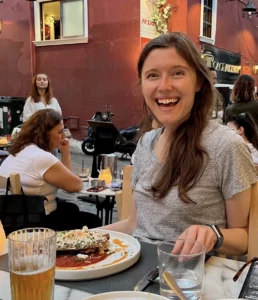
“I was able to see science in its socio-political context and how it is really shaped by the time and place in which scientists live, and the ideas floating around at the time,” says Ames, now a research scientist with the Kaiser Permanente Division of Research. “I found that super interesting.”
Ames answered our questions about her career journey from Massachusetts to Northern California.
How did you decide to become a researcher?
After college, I took a research assistant job in the environmental health department at Boston University (BU) where I worked on a study assessing everyday exposures to flame retardant chemicals. I viewed the job as giving me a bit more time to think about my career in medicine, but it ended up sparking my interest in research. I liked the public health aspect of the work; it was very multidisciplinary and challenging. I was thinking about how the exposure evidence we were collecting would be used. How do we change policy? How do we get rid of these chemicals from our environment when sometimes they have essential uses?
While I was a research assistant, I completed a master’s degree in environmental health. I took an epidemiology class that I found super interesting, with philosophical questions around causal inference and the many factors that shape our health. I first heard about the prenatal origins of disease hypothesis in one of my classes and became really interested in the idea that so much of our long-term health may be programmed by our prenatal environment, before we are born.
I decided I wanted to stay in research, which led me to the PhD program in epidemiology at the University of California, Berkeley. I liked the idea of doing this kind of research in California, which has a relatively progressive approach to environmental health.
How did you choose to study autism?
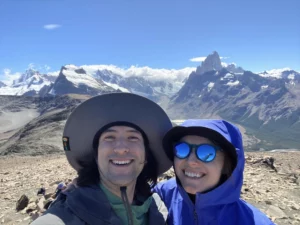
My PhD dissertation project was focused on the health impacts of an industrial explosion that caused widespread dioxin exposure in Italy in 1976. My advisor was following the health of women who had been exposed and their children born years later. I was looking at neuropsychological functioning in the kids and going down this path of understanding the neurotoxicity and gene-environment interactions of prenatal exposures. There was a postdoc position in Lisa Croen’s group at DOR, and I applied to that in 2018. The research questions being pursued by the Autism Research Program, many of which focused on gene-environment topics, were really interesting and compelling to me and would allow me to extend my interests into autism. And Lisa’s mentorship was a really good fit.
What are you working on now?
Related to my interests in the role of environmental factors in autism, one of my studies is looking at prenatal exposures to organophosphate ester flame retardants, which have since replaced the PBDE flame retardants I had been studying at BU.
And on the health care delivery side, I have a study on the transition from pediatric to adult care for autistic patients, and understanding how we can improve this transition process at age 18 and better prepare patients and providers. Lisa started this work and has passed it to me, and I’m privileged to work with some amazing clinical collaborators from both pediatrics and adult and family medicine who are super-dedicated to championing solutions to support these families with solutions that are also practical for health care providers.
I’m also working on reproductive health care for autistic people. We have an autistic advisory board, and they are bringing really important insights into the work of how to design studies that better address their reproductive health needs, and develop new resources that can help autistic patients and their health care providers.
I’ve found it to be helpful to stay curious and open-minded.
Do you have any advice for younger people thinking about a research career?
I think for me, having experiences as a research participant and as a research assistant, where I got to work with participants and do primary data collection were great ways to get my feet wet and to better understand the research process.
For a postdoc, I would say to find a mentor who will support you in finding your footing in a new area. A postdoc fellowship is an incredible opportunity to grow your skills and learn. It’s great to get plugged in to ongoing studies and collaborations, and it’s even better if you are also provided the space and resources to branch out so you can develop and pursue your own ideas too, while you still have that postdoc mentorship.
I’ve also found it to be helpful to stay curious and open-minded. One reason I came into autism research was because of the etiological questions — how does autism occur? But I’ve found that I have become really interested in the health care delivery side of things, working with our clinicians and understanding patient experiences.
What do you do outside of work?
I used to play competitive Ultimate Frisbee, but in the past couple of years I’ve started to dial that back a bit to make room for new hobbies. I really like traveling, hiking, and backpacking, and try to go on at least a couple of backpacking trips each year. My partner and I just bought an old house, built in the 1890s, and we’re trying to learn some home improvement skills so we can take on some small home projects. I’m also trying to learn more about growing vegetables and gardening. So trying some new things!
Top photo: Ames, second from left, with friends hiking in the Lost Coast, Humboldt County, California.
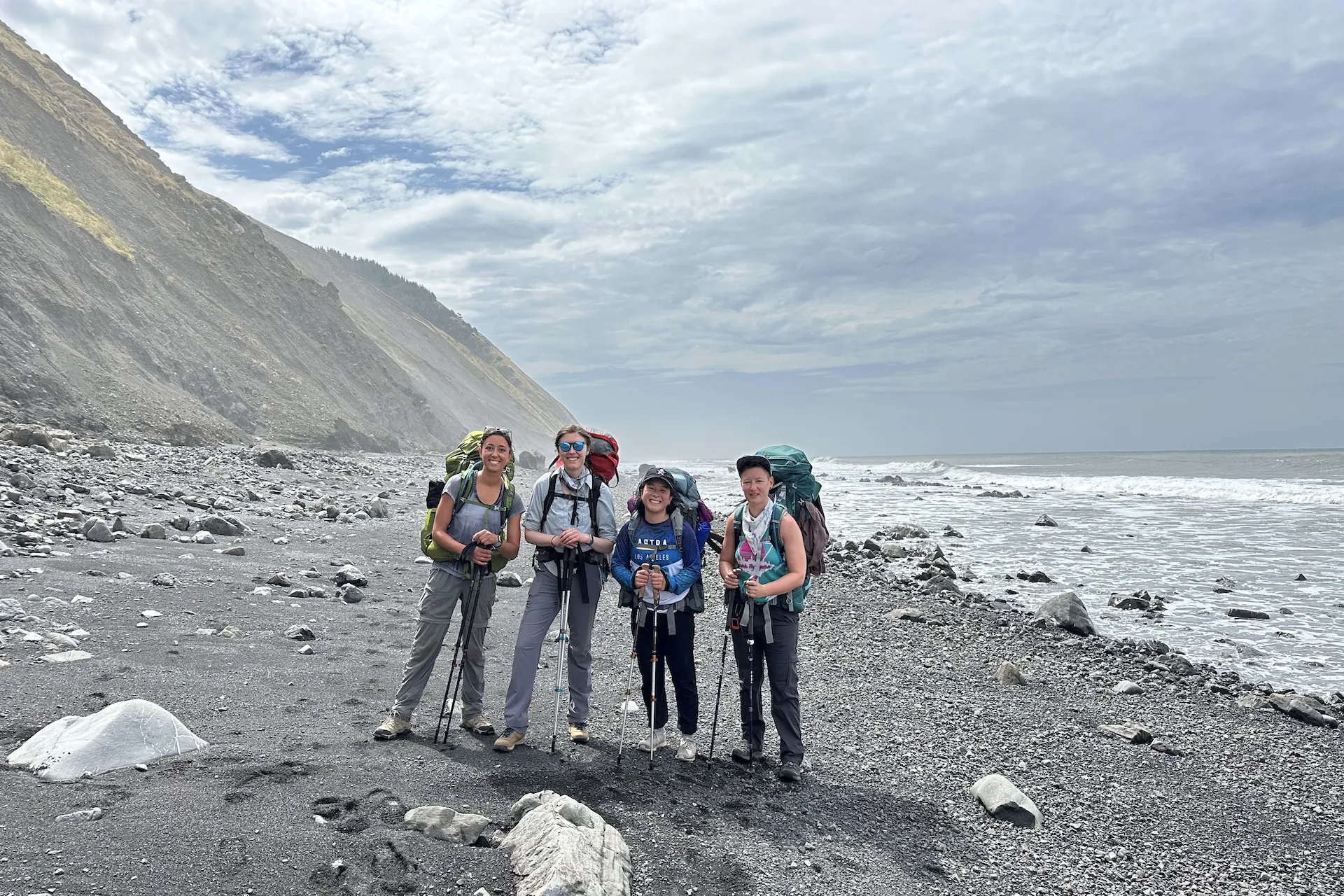
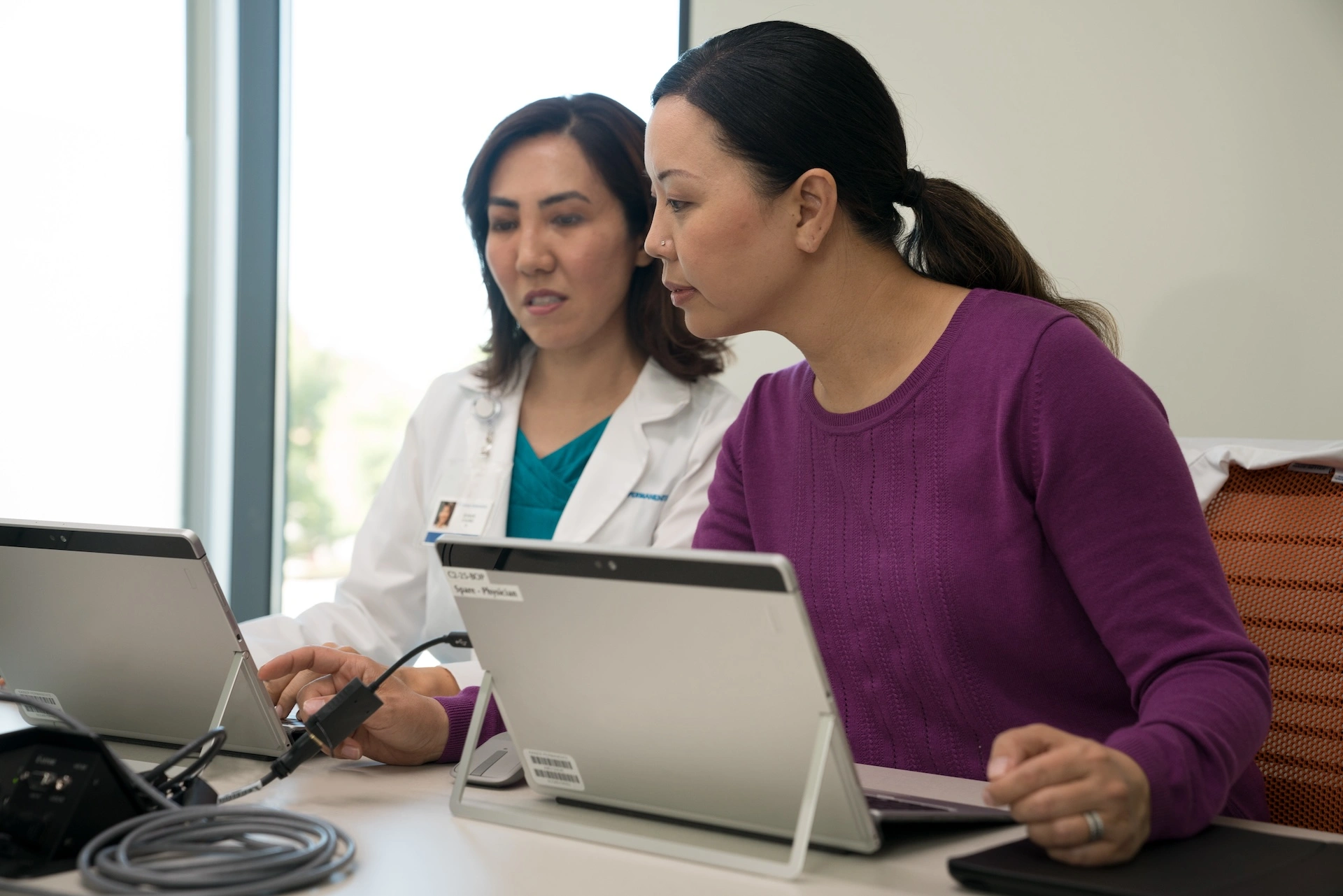


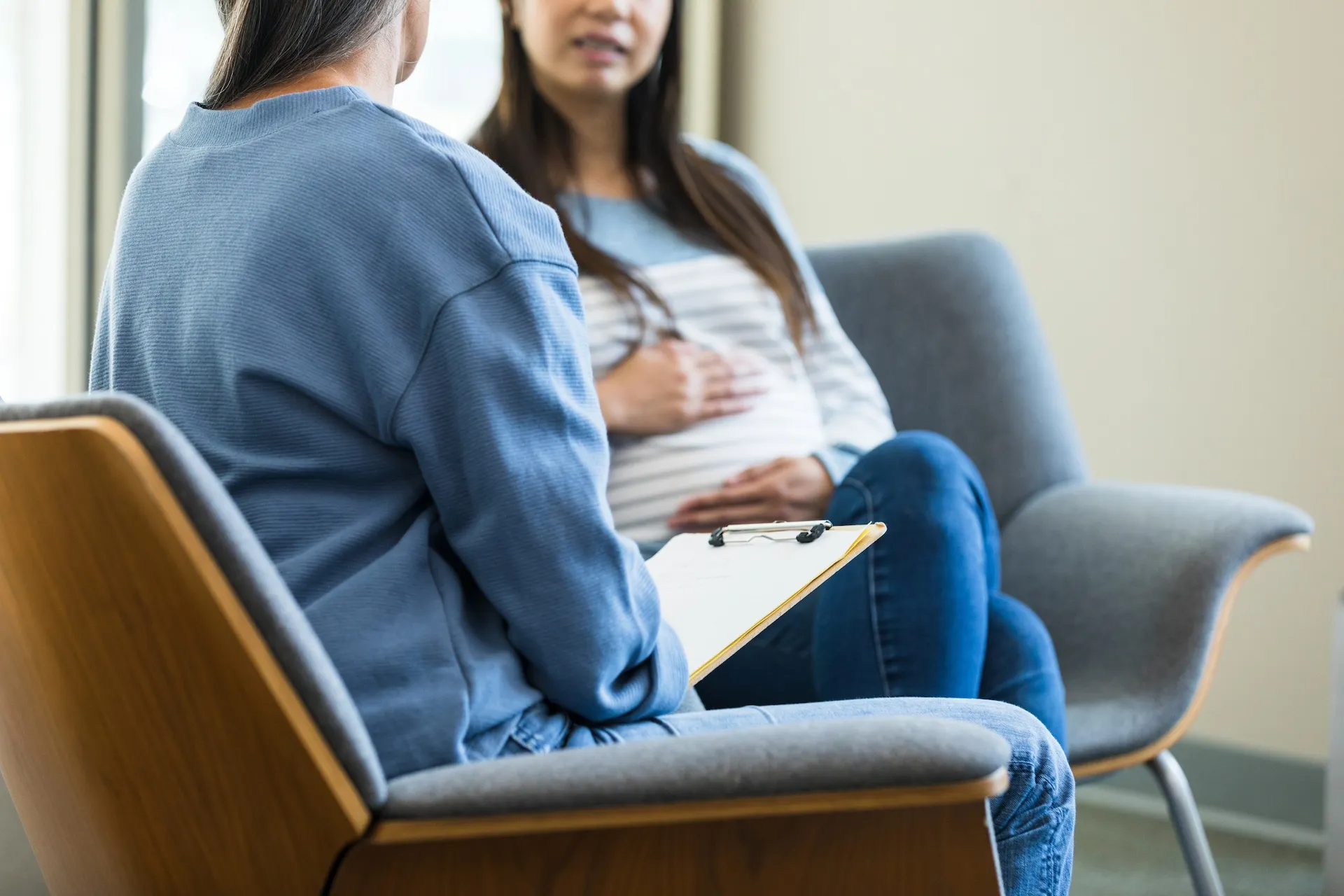
This Post Has 0 Comments